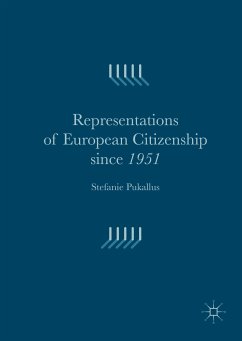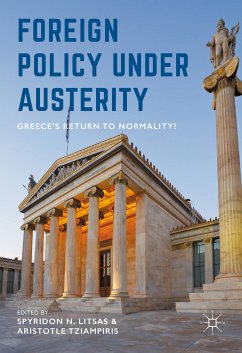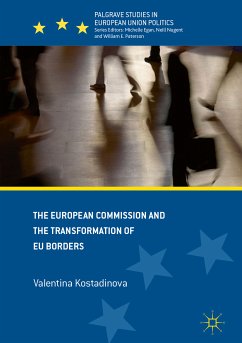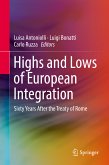This book is a study of the multiple meanings of European citizenship, which has been represented and publicly communicated by the European Commission in five distinctive ways - Homo Oeconomicus (1951-1972), A People's Europe (1973-1992), Europe of Transparency (1993-2004), Europe of Agorai (2005-2009) and Europe of Rights (2010-2014). The public communication of these five distinct representations of European citizenship reveal how the European Commission conceived of and attempted to facilitate the development of a Civil Europe. Ultimately this history, which is based upon an analysis of public communication policy papers and interviews with senior European Commission officials past and present, tells a story about changing identities and about who we as Europeans might actually be and what kind of Europe we might actually belong to.
Dieser Download kann aus rechtlichen Gründen nur mit Rechnungsadresse in A, B, BG, CY, CZ, D, DK, EW, E, FIN, F, GR, HR, H, IRL, I, LT, L, LR, M, NL, PL, P, R, S, SLO, SK ausgeliefert werden.









